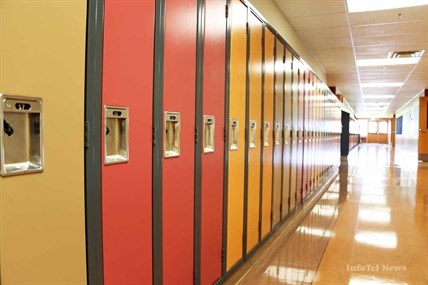
(JENNIFER STAHN / iNFOnews.ca)
October 04, 2014 - 10:24 AM
THOMPSON-OKANAGAN - Most people have heard of a school board, and school trustees, but what exactly is the role of a trustee?
Nominations have opened in advance of the municipal elections throughout the province on Nov. 15.
Keep in mind that school districts are a huge employers with big, taxpayer-funded budgets, so even if you aren't considering running for a spot on your local school board, it can't hurt to to know about the trustees who spend those tax dollars.
Here is a look at the key functions of the role — the very basics of what you need to know about the position.
Just what does a trustee do?
Trustees are part of the Board of Education for the school district and the board as a whole has legal authority.
They must follow the School Act, which sets out rules and policies for how districts are to be managed. They also direct the superintendent and secretary-treasurer and all district staff reports to one of those two positions.
Trustees hire principals and vice principals, hire administration, create policy, approve courses and school plans, provide feedback to administration on major decisions and lobby all levels of government.
Kamloops-Thompson School District trustee Gerald Watson says the biggest contribution trustees make as local elected representatives is the ability to take the funding envelope and, within provincial guidelines, apply a “local” flavour to how the system is run.
“For example, we put a lot more resources per student into certain elementary schools because we know the circumstances and think that is the best way to spend the money,” he says. “We’ve consistently tried to put money into classrooms… a much lower percentage of our total budget is spent on administrative salaries. The freed up money represents more teachers and certified education assistants.”
In some districts trustees are assigned as a representative of certain schools. They work with the teachers, students, parents and administrators and act on behalf of the school at board meetings. Schools can be assigned based on location and by request.
It has been a number of years since boards could set the school property tax rate. That is now handled at a provincial level and the budget is then passed down to each district.
How much time do you need to commit?
Terms are now four years. They used to be three but the provincial government increased the municipal term, effective following the 2014 elections.
Meetings are held at least monthly. They can include presentations, dealing with issues, setting policy and looking at budgets. Trustees also attend board and community-based committee meetings on a regular basis and may attend regional and provincial meetings.
Trustees follow the school calendar, with limited meetings during the summer months.
How much is a trustee paid?
Trustees are paid between $10,000 to $21,000 a year across the five Southern Interior school districts. Trustees are also reimbursed for certain expenses, such as travel.
How many trustees are elected?
Between seven and nine candidates are elected to most school boards, depending on the size of the district. Ballots are cast as part of the muncipal election when a mayor, councillors and regional district directors are elected.
Who should run for trustee?
If you are thinking of running for trustee, know there is no “rulebook” that outlines who can run, though candidates should run for the right reasons. Okanagan-Skaha School District chair Bruce Johnson says candidates should care about kids and education, have an open mind and be community-minded.
Being a trustee is a “very rewarding job,” Johnson says, who encourages others to run. He also notes people should know trustees can really make a difference at the local level.
Watson from Kamloops agrees, noting every trustee brings something different to the table.
“Some are very active in the schools and provide a conduit to senior administration,” Watson says. “My personal strength is in dealing with human resources issues, provincial bodies and higher levels of government.”
You need to be 18 years old, a Canadian citizen and a B.C. resident for at least six months. You also must not be legally disqualified from being nominated, being elected to or holding office. You don't have to run for trustee in the community where you live.
To contact a reporter for this story, email Jennifer Stahn at jstahn@infonews.ca or call 250-819-3723. To contact an editor, email mjones@infonews.ca or call 250-718-2724.
News from © iNFOnews, 2014